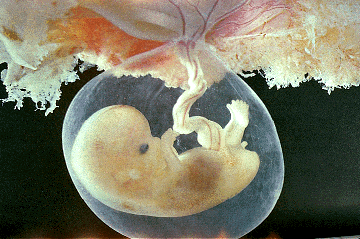Legal Issues with Embryonic Stem Cell Research The Bush Administration allowed scientists and researchers to conduct their research on all types of stem cell research; however, in 2001, Bush made the decision to limit federal funding of embryonic stem cell research to only a few dozen stem cell lines. Some organizations funding research programs had to use private funds, but concealed organizations administered funds to research programs illegally. Other legal issues included the licensing, patent, and intellectual property rights of those conducting research on embryonic stem cells. Scientists had to obtain licenses to use stem cell technology, but if they were to expire and were not dealt with, lawsuits were needed to settle the case. After President Obama was elected, he lifted the restrictions on embryonic stem cell research in 2009 because as he stated in his executive order, "medical miracles do not happen simply by accident"(8, 9, 10, 11, 25) | (click image for source) (click image for source) |
(click image for source) | The Economic Impact of Embryonic Stem Cell Research Embryonic Stem Cell Research can potentially cure diseases that patients suffer from all around the world, which can rid them of the hardship of paying high health care prices for disease treatment. The burden of dealing with high healthcare costs is eliminated once patients have been completely cured from a disease thanks to embryonic stem cells. There has always been an immense debate on using embryos for stem cell research, but over the past couple of decades the international regulations has created a drift causing economic interests to tower over public debate. With stem cell research taking interests in the many minds of developing scientists all over the world, it allows them the opportunity to achieve high-paying jobs, which is definitely a tremendous global economic impact. (12, 13) |
Ethical/Religious Issues with Embryonic Stem Cell Research When the topic of embryonic stem cell research is mentioned, moral implications may arise and begin long-lasting debates. Certain people in society completely disagree with the scientists performing research and experimenting with embryonic stem cells because it is unethical and immoral. Even the thought of destroying a human embryo can be unsettling to individuals; in their opinion, even the smallest life form deserves to live. A professor at SCU states, the human embryo should deserve moral status, they are alive, and they should be entitled to their rights and protection. He also believes that if they are to be used for research then they deserve to be treated with respect and care as any person would want. However, researchers are being very careful in experimenting with embryos, allowing them to move forward more quickly and responsibly. (14,15,16) Religious | (click image for source) (click image for sources) |
(click image for source) | Impact of Embryonic Stem Cell Research on Society There has always been an intense social controversy about embryonic stem cell research, such as social issues that involve the impact of stem cell technologies on society as a whole. Back then families had to struggle to survive because they faced the difficulties with caring for a loved one who has cancer. But today, with the new technologies that the scientific industry has provided, people all over the world can live to see another day. New technologies used for embryonic stem cell research as well as others such as cancer and creating artificial arms and legs, can save thousands of lives each day. Although embryonic stem cell research uses embryos to save lives, people in society think taking the life of a person to save another is wrong. However, the technology used for embryonic stem cell research can advance to save more and more lives each day (18). |
Background History |Issues| Innovators Potential Uses





